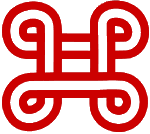Our January meeting with be next week, January 10th, 2017, at the Park Hill United Methodist Church at Montview Blvd and Glencoe St. in Denver. The meeting will start at 7 PM.
Again this month we will be having our meeting downstairs in the youth lounge.
Doubling Down on Whiteness
The beginning of 2017 seems to find the country openly struggling with what many thought was the inevitable progress of moving toward a multicultural and multiracial democracy. This is not a new thing. America has long had a pattern of resistance to minority progress and rolling it back. As Reconstruction was being dismantled after the Civil War, the cry was “We came to redeem America.” Today we hear, “We must make America great again.”
How do we prepare for this next period? What must be done to pull together a broken culture? Is it possible? Please take a look at the essay Toni Morrison wrote for The New Yorker in November, “Making America White Again.”
http://www.newyorker.com/magazine/2016/11/21/making-america-white-again
Octavia Butler, an African American science fiction writer, once said that that the two things that worried her about the future of humanity were the tendency to think hierarchically, and the tendency to place ourselves higher on the hierarchy than others. We need to find ways to counteract these urges.
